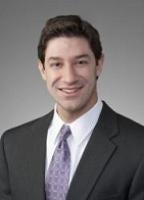On April 29, the U.S. Supreme Court issued two landmark decisions that could curtail abusive patent practices implemented by "patent trolls" or non-practicing entities (NPE) by relaxing the legal standards for awarding attorney fees in exceptional patent cases. In the two unanimous opinions authored by Justice Sotomayor, the Supreme Court reversed the Federal Circuit's denial of attorney's fees.
In the first opinion, Octane Fitness, LLC v. ICON Health & Fitness, Inc., No. 12-1184,572 U.S. ___, slip op. (2014), the Supreme Court reasoned that equitable discretion should be exercised by district courts in awarding attorney's fees pursuant to 35 U.S.C. § 285. Section 285 provides that "[t]he court in exceptional cases may award reasonable attorney's fees to the prevailing party." In Octane, the Supreme Court held that a case may be "exceptional" and justify attorney's fees if the "case is simply one that stands out from others with respect to the substantive strength of a party's litigating position (considering both the governing law and the facts of the case) or the unreasonable manner in which the case was litigated." Octane,No. 12-1184,572 U.S. ___, slip op. at 7-8.
The flexible Octane standard represents a significant departure from the Federal Circuit's previous test discussed in Brooks Furniture Mfg., Inc. v. Dutailier Int'l, Inc., 393 F.3d 1378 (2005). In Brooks Furniture, the Federal Circuit held thata district court could award attorney's fees pursuant to § 285 only if: (1) a party engaged in independently sanctionable litigation misconduct; or (2) the litigation is objectively baseless and brought in subjective bad faith. The Supreme Court rejected this high bar established by the Federal Circuit as "unduly rigid, and … impermissibly encumber[ing] the statutory grant of discretion to district courts." Octane,No. 12-1184,572 U.S. ___, slip op. at 7.
Pursuant to Octane, the district court's determination of whether a case is deemed to be exceptional justifying attorney's fees is made on a case-by-case basis considering the "totality of the circumstances." Octane,No. 12-1184,572 U.S. ___, slip op. at 8. The Supreme Court further refined the standard stating that attorney's fees may be appropriate even when there are no independent sanctionable acts, but the party's conduct "is nonetheless so ‘exceptional' as to justify an award of fees." Octane,No. 12-1184,572 U.S. ___, slip op. at 9. Indeed, either objectively baseless litigation or subjective bad faith alone might warrant an award of attorney's fees under Octane. Octane,No. 12-1184,572 U.S. ___, slip op. at 9.
Moreover, the Octane decision lowered the burden of proof required for an exceptional case finding. The Supreme Court specifically rejected the stringent "clear and convincing evidence" standard previously required in favor of a "preponderance of the evidence standard." Octane,No. 12-1184,572 U.S. ___, slip op. at 9.
In a second Supreme Court decision also related to exceptional case determinations—Highmark Inc. v. Allcare Health Mgmt. Sys., Inc., No. 12-1163, 572 U.S. ___, slip op. (2014)—the Supreme Court rejected thede novo standard of review in favor of an "abuse of discretion" standard for such determinations. Highmark, No. 12-1163, 572 U.S. ___, slip op. at 4-5. Relying on its decision in Octane, the Supreme Court held that an exceptional case finding is a matter of discretion reserved for the district court, and, therefore, should be reviewed on appeal only for abuse of discretion. Highmark, No. 12-1163, 572 U.S. ___, slip op. at 4. The Supreme Court held that "the district court is ‘better positioned' to decide whether a case is exceptional … because it lives with the case over a prolonged period of time." Highmark, No. 12-1163, 572 U.S. ___, slip op. at 5 (citation omitted).
Taken together, the Supreme Court's decisions in Octane and Highmark represent a significant shift in law governing exceptional case determinations. The new standards may deter abusive patent litigation in which NPEs seek cost-of-defense settlements in connection with meritless allegations of infringement. Finally, these opinions are consistent with proposed legislation being considered by congress to promote fee shifting provisions in NPE litigation.



 />i
/>i
